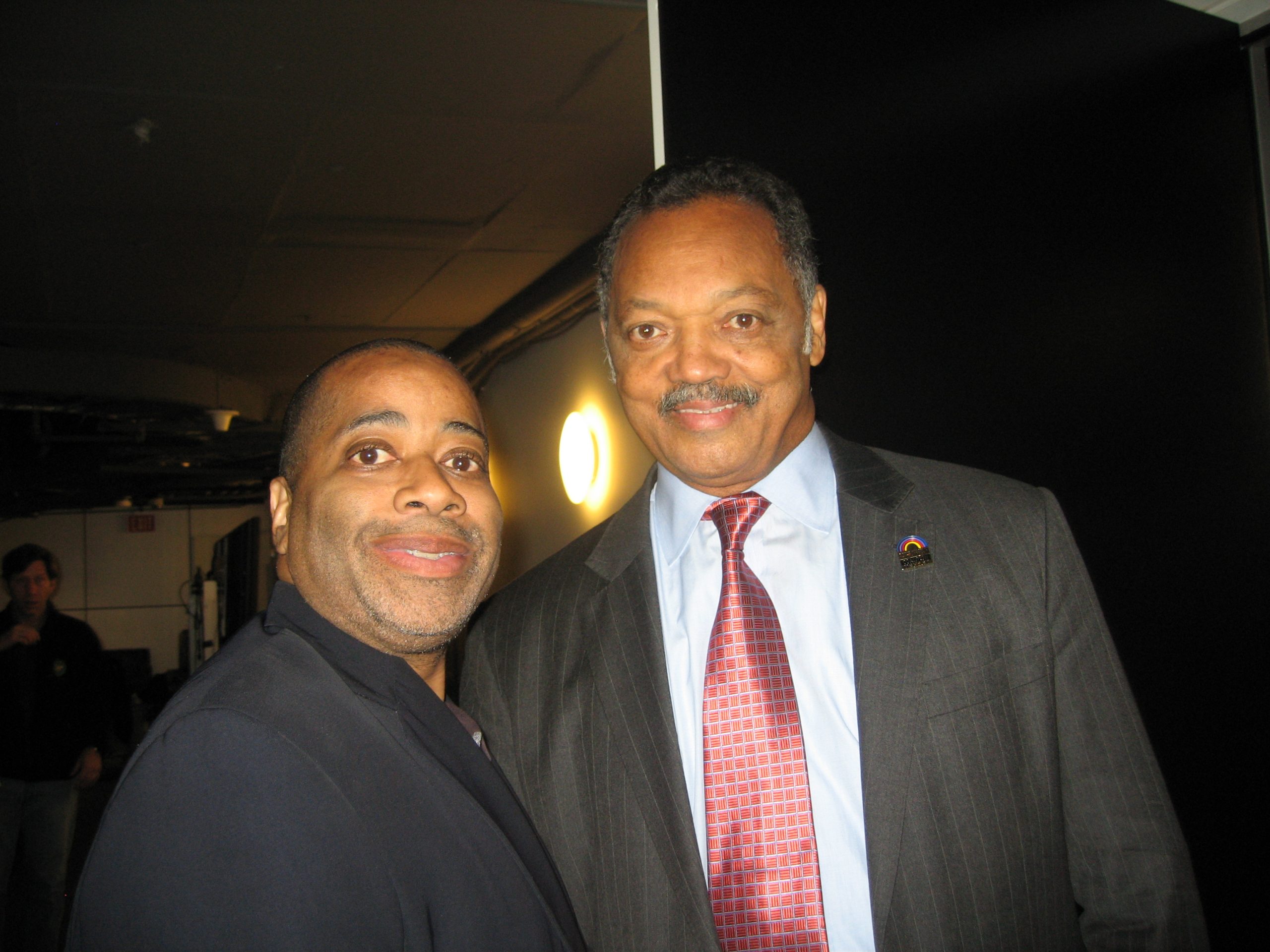(ThyBlackMan.com) Gloria Gaynor’s contributions to music extend far beyond the disco era that first catapulted her to fame. While “I Will Survive” remains her most iconic hit, Gaynor’s broader catalog reveals a versatile artist capable of delivering both emotionally charged ballads and rhythm-driven anthems. Her voice—confident, expressive, and unmistakably soulful—has resonated with listeners across decades, cultures, and personal journeys.
This curated selection of songs highlights the depth of her artistry. From early dancefloor staples to empowering affirmations of identity, each track reflects a unique facet of Gaynor’s legacy. These aren’t simply songs of a bygone era—they’re enduring works that continue to inspire, uplift, and move audiences even today.

1. “I Will Survive”
It’s impossible to begin any Gloria Gaynor list without this defining track. “I Will Survive” isn’t just her most recognizable hit—it’s a landmark in pop music history. Released in 1978, the song came at a time when disco was saturating the airwaves, yet this track carved out a space entirely its own. Built on a bedrock of sweeping string arrangements, steady basslines, and a triumphant chord progression, the instrumental grabs you instantly—but it’s Gaynor’s vocal delivery that makes the song immortal.
She begins softly, almost tentatively, as if she’s still processing the heartbreak. But by the time she belts “Go on now, go,” her voice soars with confidence and command. It’s that arc—from wounded to warrior—that gives the song its emotional punch. Her phrasing is impeccable, and the dramatic pauses she takes between lyrics create moments of reflection, allowing listeners to fully feel the transformation she’s undergoing in real time.
“I Will Survive” became more than a breakup anthem; it evolved into a civil rights and LGBTQ+ empowerment anthem, a feminist rally cry, and a personal theme song for anyone who has been counted out. Its power lies in its universality—it’s specific enough to feel personal but open enough for nearly anyone to see themselves in it. That’s why it continues to resonate across generations and across cultures.
Put it on today, and the effect is still electric. Whether you’re dancing alone in your living room or crying in your car, Gaynor’s declaration of resilience never fails to uplift. It’s a life soundtrack moment—a reminder that even in your lowest hour, strength is waiting just beneath the surface.
2. “Never Can Say Goodbye”
Gaynor’s rendition of “Never Can Say Goodbye” is one of those rare covers that completely redefines the original without losing its essence. The song was already well-loved thanks to The Jackson 5’s emotional take, but Gloria Gaynor and her production team transformed it into a trailblazing disco masterpiece. It was one of the first tracks ever to be extended into a 12-inch dance mix, helping to establish a format that would dominate clubs for decades.
Musically, it opens with no hesitation. A dramatic string flourish leads into a relentless bassline that pushes the track forward. The rhythm section keeps it buoyant, while the orchestration lifts it to theatrical heights. Gaynor’s voice, rich and mature, adds a new layer of complexity to the story. Unlike the innocent confusion of young love in the original, Gaynor delivers the lyrics like someone who’s lived through heartbreak and knows the push and pull all too well.
There’s a tension between the lyrics and the arrangement that makes the song so effective. She’s singing about being unable to let go of someone, yet the beat insists on movement. That contrast creates a kind of emotional dissonance that turns the track into a paradox: you dance to avoid breaking down. That’s the magic of Gaynor’s disco—pain and power live in the same space.
Today, “Never Can Say Goodbye” still holds up not only for its dancefloor vitality but for its psychological depth. It’s the perfect song for those moments when you’re trying to move on but your heart hasn’t caught up yet. It’s disco therapy, as relevant in 2025 as it was in 1974.
3. “Let Me Know”
While it didn’t reach the chart heights of “I Will Survive,” “Let Me Know (I Have a Right)” is just as important in showcasing Gaynor’s evolution as a vocalist and as an empowered woman. The song is a sophisticated statement on boundaries and self-worth, arriving at a time when those themes weren’t often heard in pop or disco music. It stands as one of her most underrated gems—soulful, grounded, and beautifully produced.
From the opening chords, there’s a sense of drama that sets this track apart. The arrangement leans more into R&B and adult contemporary than her usual disco fare. There’s a plushness to the sound: soft piano strokes, restrained guitar work, and emotive background harmonies all contribute to a simmering tension. When Gaynor enters, her voice doesn’t explode—it asserts. This is not the wounded woman of her earlier songs. This is a woman drawing a line and demanding respect.
What makes the track shine is its lyrical maturity. “I have a right to be loved,” she sings—not as a plea, but as a truth. It’s about standing up not just for love, but for loving oneself enough to walk away if the love isn’t reciprocated or respected. For anyone who’s ever had to articulate their needs in a relationship, this track speaks directly to you.
Over four decades later, “Let Me Know” feels more relevant than ever. In an era that values emotional intelligence and boundary-setting in relationships, Gaynor’s message is timeless. This song isn’t just a slow jam—it’s a manifesto for self-respect.
4. “Reach Out, I’ll Be There”
To cover “Reach Out, I’ll Be There” after The Four Tops made it a Motown staple is no small feat. Yet Gloria Gaynor doesn’t just revisit the track—she reinvents it. Her version is an exhilarating blend of gospel-inspired power and disco flair, adding spiritual fire to a song that already promised emotional rescue. In Gaynor’s hands, it becomes a declaration of unwavering support that feels both divine and deeply human.
The production lifts the song into another stratosphere. A stronger rhythm section, layered strings, and dynamic pacing make it feel cinematic. Instead of the original’s martial drumbeat, Gaynor’s version gallops with optimism. The background singers function almost like a choir, amplifying the song’s gospel undertones. The result is a piece that feels rooted in church but built for the dancefloor.
Vocally, she’s astonishing. Gaynor doesn’t just tell you she’ll be there—she proves it with every syllable. There’s a moment near the song’s climax where she holds a note just a bit longer than expected, and it sends a shiver down your spine. She’s not just singing words—she’s embodying a promise. And unlike the original male-led version, her take introduces a nurturing, maternal tone that adds a fresh layer of emotional complexity.
In 2025, this song plays like a hug wrapped in melody. Whether you’re going through grief, doubt, or loneliness, “Reach Out, I’ll Be There” offers an emotional lifeline. It’s a reminder that even when you feel lost, someone is out there ready to lift you up—and Gaynor makes you believe she’s that person.
5. “Honey Bee”
With “Honey Bee,” Gloria Gaynor immerses herself in pure disco ecstasy—a track that buzzes with flirtatious energy and unrestrained groove. As one of the earliest standouts from her Never Can Say Goodbye album, “Honey Bee” sets the tone for what would become Gaynor’s signature sound: high-energy dance music that doesn’t skimp on vocal quality. The song oozes with orchestral flourishes, percussive sparkle, and rhythmic propulsion that makes it nearly impossible to sit still.
Lyrically, it’s playful and cheeky, using the metaphor of a honey bee to describe the sweetness and sting of romantic attraction. There’s no deep heartbreak here, no emotional reckoning—just sensuality and joy wrapped up in layers of upbeat, bright instrumentation. But that doesn’t mean it lacks sophistication. Gaynor’s delivery is subtly commanding, never allowing herself to be overshadowed by the lavish production. Her timing and emphasis, especially on the repeated “honey bee” hooks, make the lyrics stick in your head long after the track ends.
“Honey Bee” became a dancefloor favorite, capturing the essence of what early disco represented: freedom, joy, and movement. For Gaynor, it helped build her reputation as not just a singer, but a vibe curator. The track doesn’t try to be profound—it invites you to have fun, sweat a little, and leave your troubles on the dance floor. In the context of the 1970s, that kind of musical escapism was both revolutionary and restorative.
More than 40 years later, “Honey Bee” still delivers that shot of kinetic energy. Whether blasting through vintage speakers at a roller rink or booming from Bluetooth at a backyard party, it retains its sparkle. It’s a reminder that not all songs have to change your life—some are meant to improve your moment, and “Honey Bee” does exactly that.
6. “I Am What I Am”
Gloria Gaynor’s rendition of “I Am What I Am” is one of her most important artistic statements—and one that reaches far beyond the dancefloor. Originally penned by Jerry Herman for the groundbreaking Broadway musical La Cage aux Folles, the song found new life and a wider audience when Gaynor infused it with disco flair and vocal fire. By interpreting this show tune through her lens of personal empowerment, Gaynor helped elevate it into an anthem for authenticity and pride.
Musically, the song is bold and assertive, matching its lyrical content. The production is lush with dramatic builds and triumphant orchestration that mirrors the rising emotional arc of the message. Gaynor doesn’t just sing the song—she embodies it. Every note, every phrase, feels like a declaration. Her voice swells with emotion, alternating between controlled power and emotional outbursts that make the message ring loud and clear: “I am what I am—and that’s enough.”
It’s hard to overstate the cultural impact of this song. It became a pillar of LGBTQ+ self-expression, adopted as a rallying cry during a time when public affirmation of queer identity was still a revolutionary act. Gaynor’s delivery—empathetic yet defiant—provided a voice for those who felt unseen, those who needed the reminder that living truthfully was a right, not a luxury. For many fans, this song marked Gaynor’s evolution from disco queen to cultural icon.
Even today, the song resonates with new audiences. In an era that values self-love, radical acceptance, and mental health, “I Am What I Am” feels more timely than ever. Whether you’re coming out, coming into your own, or just needing to feel seen, this track doesn’t just entertain—it uplifts and validates. It’s not just music; it’s a mission statement.
7. “Even a Fool Would Let Go”
“Even a Fool Would Let Go” shows a radically different side of Gloria Gaynor. Stepping away from the glitz and pulse of disco, this ballad is quiet, introspective, and emotionally raw. From the very first piano note, there’s a softness that signals a shift. This isn’t a track built for clubs—it’s built for solitude, for those silent nights when the heart is heavy with indecision and doubt.
The lyrics capture a universal moment of inner conflict: knowing someone isn’t good for you, yet struggling to walk away. “Even a fool would let go,” she sings, not as judgment, but as a reflection on the pain of holding on. Gaynor’s vocal performance here is a study in restraint. Rather than belting, she leans into vulnerability, her voice tender and intimate, almost as if she’s confiding in the listener rather than performing for them.
The minimalist arrangement supports that emotional clarity. The soft piano is occasionally accented by gentle strings, giving the track a cinematic feel without ever overwhelming it. Gaynor is front and center, her voice carrying the full weight of the song’s sorrow and introspection. You can hear the cracks—not in her technique, but in the emotion behind it. That’s what makes this performance so poignant: it feels lived-in and honest.
It’s a track that deserves rediscovery. Often overshadowed by her anthemic hits, “Even a Fool Would Let Go” is a masterclass in emotional storytelling. Play it when you’re trying to process a love that lingers a little too long, or when you’re finding the strength to finally move on. In its quietness, it speaks volumes.
8. “Substitute”
Too often, “Substitute” is eclipsed by the towering success of “I Will Survive,” despite being one of the standout cuts from the Love Tracks album. With its infectious groove, clever lyrical concept, and no-nonsense attitude, “Substitute” is a hidden gem that blends funk rhythms with Gaynor’s signature vocal power. It’s a confident, feel-good song with a message that remains relevant decades later: don’t settle for being someone’s second choice.
The arrangement is sleek and danceable, but there’s a slight edge in the instrumentation—funky guitar licks, crisp percussion, and horn stabs that punctuate the track with sass. The groove is undeniable, the kind of pulse that makes you strut a little harder or flip your hair with extra flair. Gaynor glides over the production with a vocal tone that’s both playful and firm, owning every inch of the performance.
What gives “Substitute” its lasting appeal is the empowerment embedded in its narrative. Gaynor isn’t wallowing—she’s walking away. She’s telling her would-be lover, “You had your chance, and now I’m done being your stand-in.” It’s a prelude to the energy she’d later explode with on “I Will Survive,” showing that her sense of self-worth was already present and potent. The lyrics are smart, layered with emotional nuance, yet delivered with catchy simplicity.
Add this to any modern empowerment playlist, and it fits right in. It’s a song that teaches lessons without preaching, makes you dance without guilt, and reminds you of your value without apology. “Substitute” may not have topped the charts, but in the heart of any serious Gloria Gaynor fan, it stands tall.
9. “All I Need Is Your Sweet Lovin’”
“All I Need Is Your Sweet Lovin’” is one of the more joyfully expressive cuts from Gaynor’s early catalog. It pulses with an undeniable warmth that sets it apart from her more defiant or heartbroken anthems. Riding the wave of mid-’70s disco-funk fusion, the track wraps upbeat instrumentation around a love-soaked sentiment that feels both innocent and celebratory. There’s no drama here—just the infectious giddiness of wanting someone, heart and soul.
Musically, the song is a delight. A bouncing bassline lays the foundation while bright horns punctuate the rhythm with bursts of sunshine. The percussion, lively but never overpowering, keeps the momentum going, and the background vocals add layers of sweetness to an already glowing arrangement. Gaynor’s lead vocal floats effortlessly on top of the groove—her tone warm, affectionate, and full of charm. You can almost hear her smiling with every word, particularly during the chorus, which beams with genuine affection.
This song showcases a different side of Gaynor’s artistry. Often celebrated for her strength and independence, here she embraces vulnerability, but it’s a vulnerability without desperation. She’s not begging—she’s affirming how good love can feel when it’s right. That kind of emotional transparency is rare, especially in the disco genre, which often prioritized energy over intimacy. Gaynor finds a way to do both.
“All I Need Is Your Sweet Lovin’” might not have achieved the mainstream attention of her biggest hits, but it remains a fan favorite for those who explore her deeper discography. It’s perfect for setting a feel-good mood—whether on a road trip with the windows down or as background music to a cozy afternoon at home. It’s the kind of song that reminds you love can be simple, sweet, and worth celebrating.
10. “This Love Affair”
“This Love Affair” closes out Gaynor’s 1979 I Have a Right album with a dose of soulful reflection. At first listen, it might seem like just another downtempo ballad about heartbreak, but beneath the surface lies a rich emotional narrative. The song deals with the quiet unraveling of a relationship—not through anger or betrayal, but through a sad realization that the connection simply isn’t what it used to be. It’s an understated yet powerful meditation on emotional closure.
The instrumentation feels tailored to the mood: smooth electric piano, a gentle rhythm section, and subtle string swells that accentuate rather than dominate. There’s a softness to the production that gives Gaynor’s voice room to shine. Her vocal delivery here is exquisite—restrained yet poignant. She sings not as someone angry or devastated, but as someone who’s reached clarity. There’s melancholy, yes, but also acceptance.
What makes “This Love Affair” especially resonant is its emotional maturity. There are no dramatic declarations, no scorched-earth choruses. Gaynor approaches the subject with dignity, making the song all the more relatable. In a genre where breakup songs often veer into the melodramatic, this track stands out for its honesty. It acknowledges that sometimes love fades, and that letting go with grace can be just as powerful as fighting to hold on.
In the arc of Gaynor’s discography, “This Love Affair” is a subtle standout. It doesn’t demand attention—it earns it through its sincerity. For listeners navigating the end of a relationship or simply reflecting on past heartbreaks, the song offers comfort and clarity. It reminds us that endings don’t always have to be loud to be meaningful—they can be quiet, thoughtful, and still deeply moving.
Gloria Gaynor’s discography is a testament to the power of resilience, self-expression, and emotional authenticity. Whether commanding the dancefloor or offering quiet reflection, her music consistently balances lyrical strength with vocal finesse. These featured tracks demonstrate her ability to evolve while staying true to the core themes that define her artistry—empowerment, love, and personal truth.
As audiences continue to seek music that speaks to both heart and spirit, Gaynor’s songs remain remarkably relevant. Revisiting these selections not only honors her legacy, but also reminds us why her voice—and message—still matter today.
Staff Writer; Jamar Jackson

















Leave a Reply